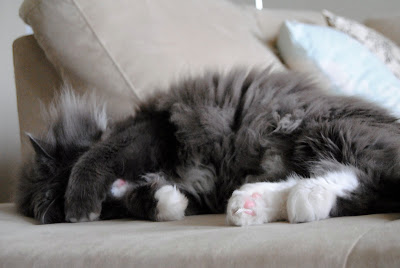Positive
Psycho(path)logy…
University
of Pennsylvania’s Positive Psychology Center defines Positive Psychology as
“the scientific study of the strengths and virtues that enable individuals and
communities to thrive…The field is founded on the belief that people want to
lead meaningful and fulfilling lives, to cultivate what is best within
themselves, and to enhance their experiences of love, work, and play.” Although
positive psychology is not a new discipline, it has gained popularity in the
last decade as a supplemental view to classical psychology, which traditionally
only focused on the treatment of mental illness. “Psychology after World War II
became a science largely devoted to healing. It concentrated on repairing
damage using a disease model of human functioning. This almost exclusive
attention to pathology neglected the idea of a fulfilled individual and a
thriving community, and it neglected the possibility that building strength is
the most potent weapon in the arsenal of therapy”. Positive psychology aimed to
address the preoccupation with only treating mental illness by focusing on
mental health and resiliency as a sort of prevention therapy. Some invaluable
research has come out on topics that are of everyday concern to healthy North
Americans by focusing on ‘optimizing’ healthy mental functioning and increasing
wellbeing. But, since the initial surge in research from 1999 onward, the
popularity of positive psychology has eclipsed classical psychology and spilled
over into the arena of self-help. Self-help gurus have taken positive
psychology out of its context as a supplemental method, in order to make
it more commercially viable.
Self-help doesn't always help...
The
popularity (and marketability) of this kind of Pop-psychology is twofold and
inter-related. Firstly, its appeal lies in filling a void in the psyche of a
consumer culture run by the inescapable presence of advertising. Media
continues to expertly prey on our animal-tendencies by refining their
understanding of what will increase consumption and possession practices.
Corporations have thus tailored their marketing to appeal increasingly to
hedonic, aesthetic, and ritualistic dimensions. This level of manipulation,
coupled with the inescapable presence of media that saturates every waking
moment of life, has created a consumerist culture that is no longer voluntary,
or avoidable. This pathology of habitual desire (that has all the
characteristics of a psychological addiction) is intensified by credit
card-culture, and this ‘addiction’ is only worsened by constant acquisition.
North Americans have become consumer addicts, and slavery to credit-card debt,
coupled with longer working hours to facilitate more shopping, results in
increasing unhappiness, which in turn worsens the pathology. In this
environment of constant psychological ‘emptiness’, self-help thrives because of
an approach rooted in positive psychology, where the techniques focus on
maximizing pleasure and minimizing pain. Conversely, Pop-psychology also
serves to smooth the progress of this addiction by asserting North American’s
‘right’ to have everything they’ve ever wanted, and thereby endorses an
approach that encourages a cost-benefit analysis of every action and
interaction in life. So, we are left with a populace that is deeply addicted to
consumerism and estranged from their community by ‘righteous self-interest'.
This populace then turns to self-help, in order to combat the growing
discontent in their lives, and are advised to reach a further level of
introspection where they will find some untapped resource that will lead to
health, wealth, and hopefully happiness. By examining the popular Western
ideology on which the misguided self-help industry depends, it is apparent that
these ideologies set limits on what human flourishing looks like.
I am my only company...
The central
tenets of self-help rest on the ideology of individualism. Individualism is a moral
stance, a political philosophy, and an ideology or social outlook. It stresses
"the moral worth of the individual and promotes the exercise of one's
goals and desires and so values independence and self-reliance while
opposing most external interference upon one's own interests, whether by
society, family or any other group or institution”. In the West we largely
agree with this ideology, yet it deserves some scrutiny as the platform to
launch our hopes of wellbeing from. Firstly, by embodying the most extreme
kind of individualist ideology, self-help has rendered our society completely
blind to systematic injustices, because it puts the onus on individuals to
‘create’ the life that they want, and denies other factors like race, class,
sex, ability, and even random tragic events. This ‘though luck’ attitude
asserts that all individuals should be able to pull themselves up by their
bootstraps, and that if they can’t, they must not be working hard enough.
This extreme individualist ideology has weakened our ability to stand together
for change. No radical social change is possible when each individual is only
concerned with his/her own agenda. If we are told we can ‘have it all’, it is
likely we will not make any concessions, even if it will result in a higher
standard of living for everyone. Our definition of self is so wrapped up in our
need to be right, that we are unwilling to take on other points of
view. Lastly, self-help ignores research findings that do not fit the individualist
ideology. Money has been shown to have little effect on long-term happiness;
community involvement and relationships are essential to wellbeing; and regular
acts of altruism have been linked to long-term happiness (Grohol, 2010). In
this way a disguised ideology perpetuates a socio-political status quo, and
fails to do justice to moral visions outside the dominant outlook.
Unfortunately, self-help has flooded the North American psyche with unrealistic
notions of individualism that diminish our perceived need for social
interdependence, and reinforce the habits and ideologies that are the cause of
our discontent.
The
truth is in the world, not in your head…












